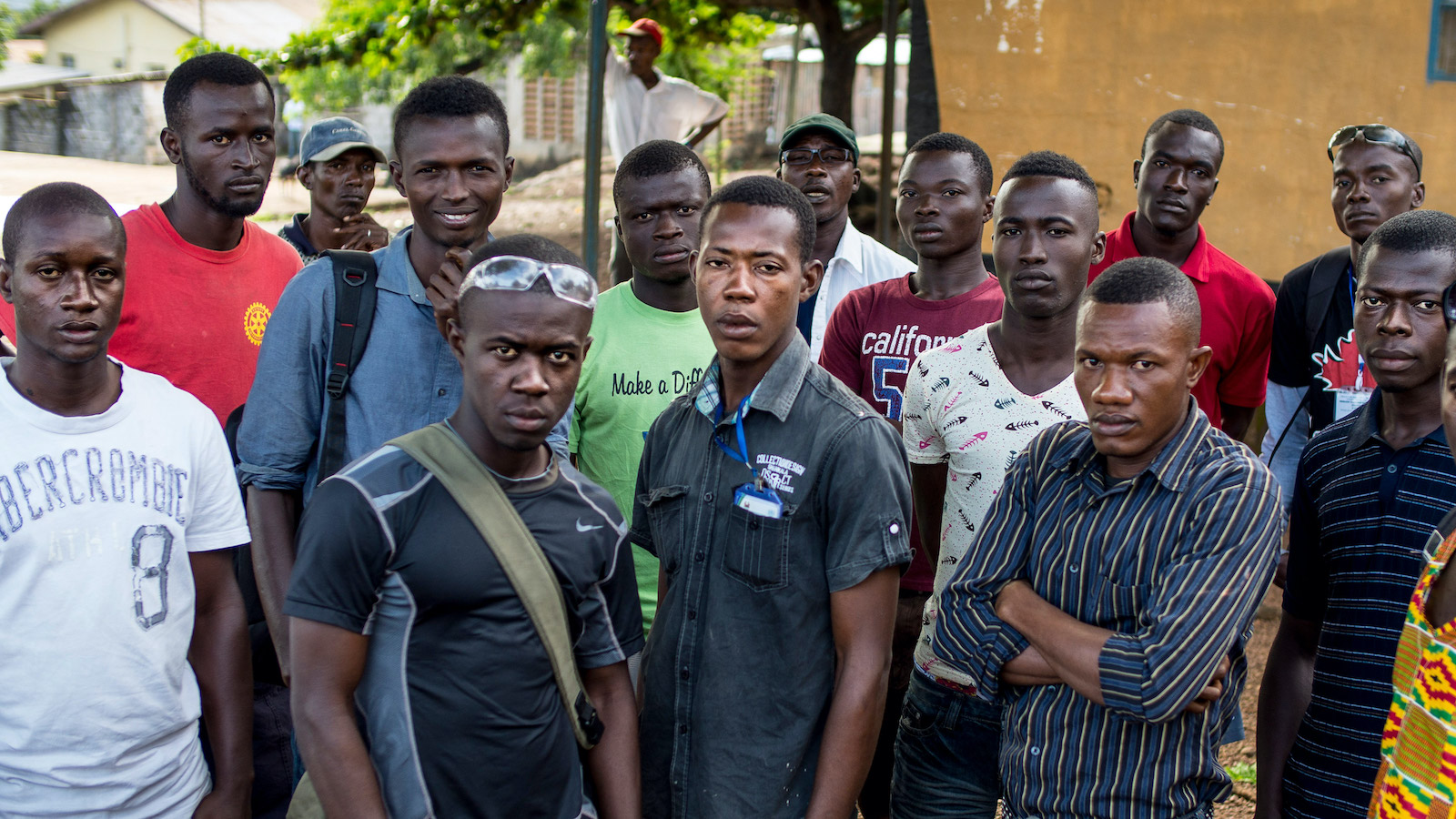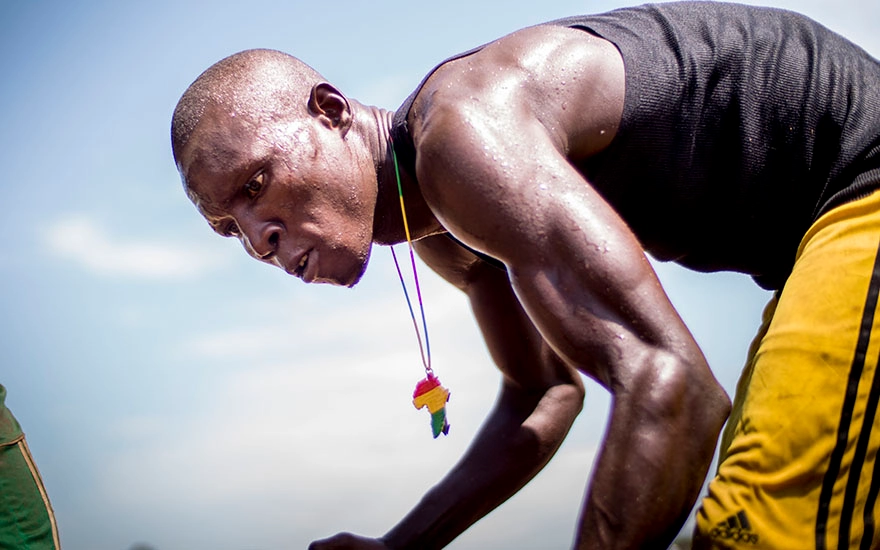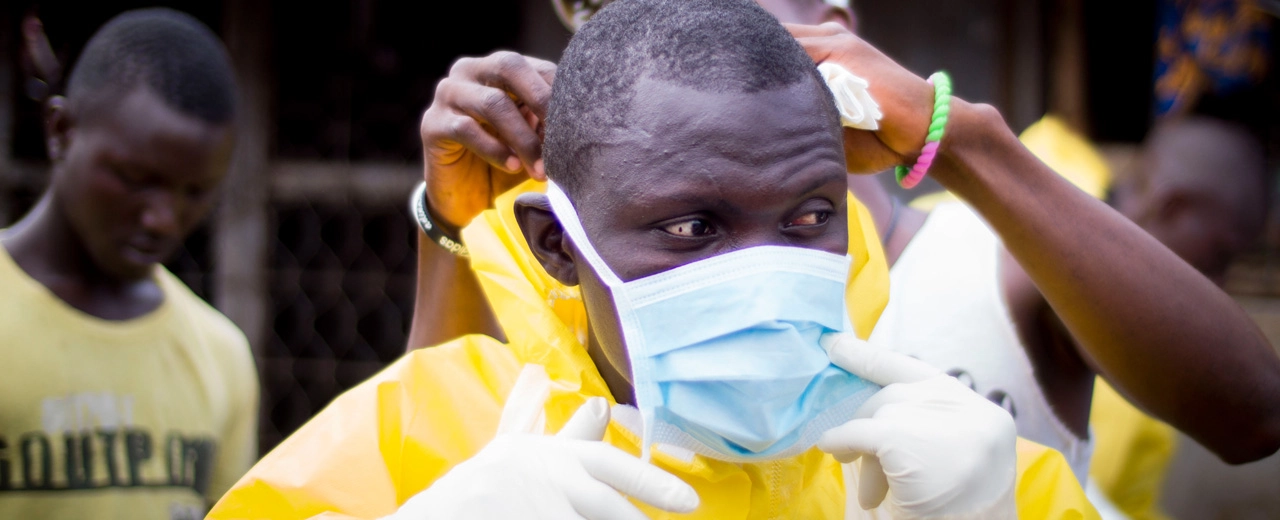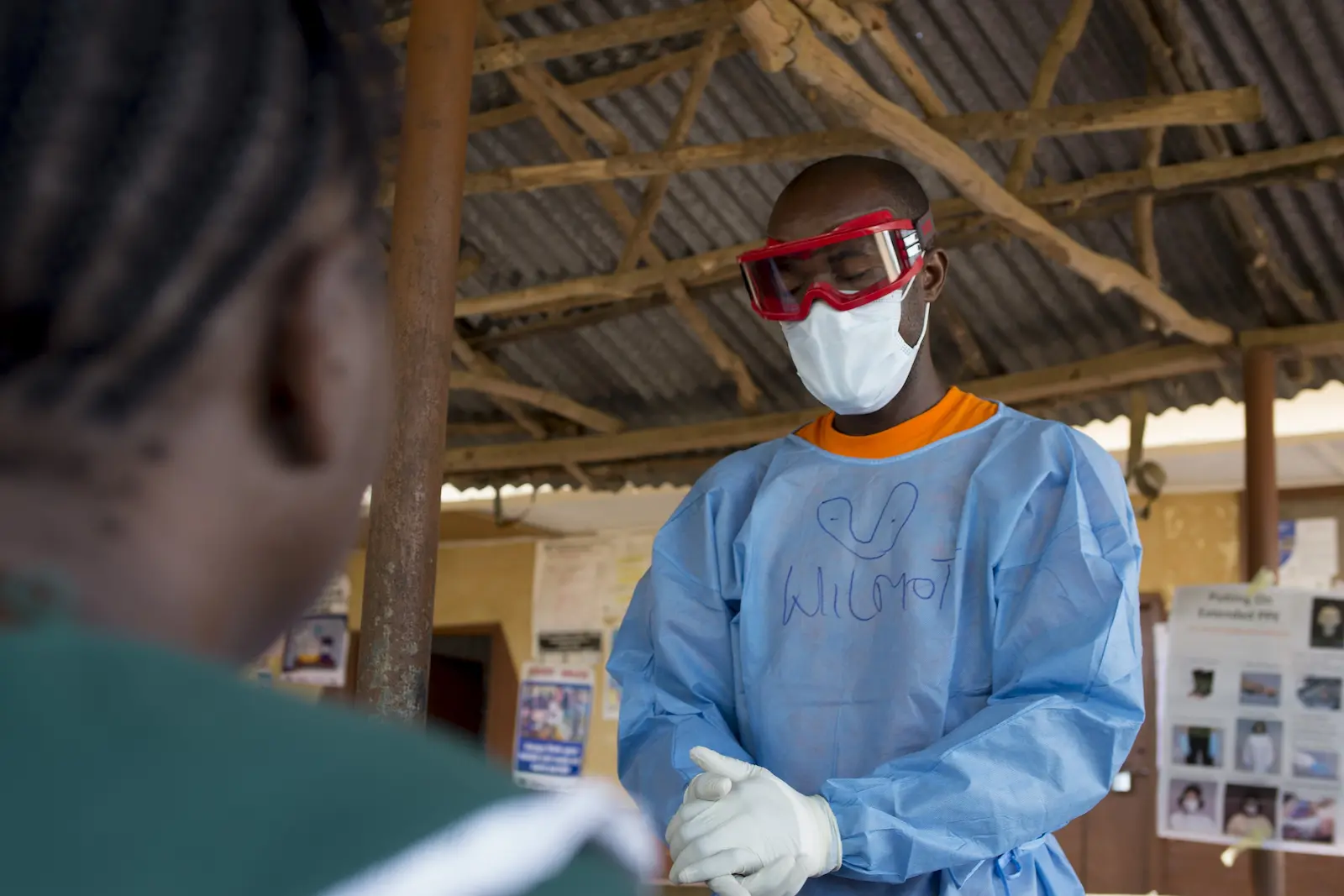In the world of infectious diseases, a lot of sadness hides behind acronyms. Concern became involved with one of the very saddest: DBM, or Dead Body Management.
In the late summer of 2014, as the West African Ebola outbreak was pacing itself into a crisis in Sierra Leone, the country’s government imposed mandatory “medical burials” for anyone who died in the capital city of Freetown. These burials involved teams dressed in full protection gear burying the bodies in a designated cemetery within 24 hours. This caused tensions with locals, especially with high levels of distrust in government fueling several deadly myths.
By late October of 2014, the outbreak had reached critical levels. Concern Worldwide was asked to step in and help manage the burial teams and the cemeteries in Freetown, subsequently overseeing the safe and dignified burials of over 17,000 people in Freetown and the surrounding area.
Contagion vs. tradition
The arrival of the Ebola virus disrupted many of the cultural and societal norms in Sierra Leone. The prohibition on large gatherings and the guidelines for avoiding bodily contact have been difficult for a highly social and interactive culture. But the restrictions placed on the families of people who have died — whether Ebola patients or not — caused particular distress for all involved.
Families were distraught at being disallowed from grieving in their traditional manner and being barred from the graveside. Traditionally, there are a number of complex ceremonies that surrounds the death, wake, and burial of a loved one in West African countries like Sierra Leone. Much of this involves friends and family touching the body, leaving the risk for post-mortem contagion high. According to some studies, the body of an Ebola victim can remain contagious for up to a week after death.
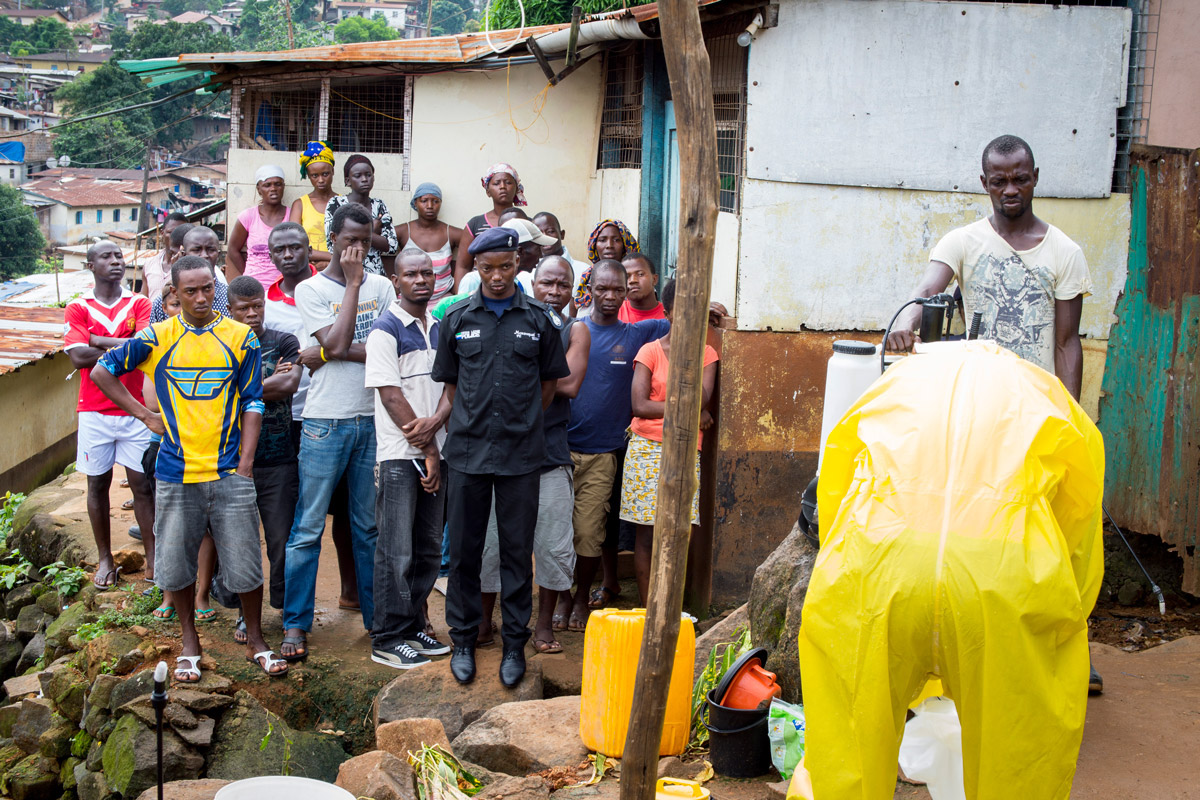
Existing cemeteries struggled to handle the huge influx, and many of the graves were neither marked nor named. In response, families tried to hide deaths from officials as they didn’t trust that their loved one would be treated with the dignity and respect they deserved — thereby putting themselves and their community at risk. As a result, as much as 80% of Ebola transmissions in Sierra Leone’s Western Area district were the result of contact with dead bodies.
Meanwhile, burial workers weren’t being consistently paid or properly equipped. Teams worked seven days a week for extremely long hours, yet less than one-third of the burials were considered safe. When Concern Worldwide and the International Federation of the Red Cross stepped in to assist in October 2014, we took over what had become a very chaotic burial system.
“I know it is dangerous, but I take my time and feel that I am well protected.… I am not working for myself, but for my country — for humanity.” — Daniel Sewah, Burial Team 7
Building a better team
By the beginning of 2015, Concern was managing 14 burial teams of 12 members each across the city of Freetown and its environs. In addition, we were managing 100 cemetery workers who dug and maintained graves at the two operational burial grounds in Western Area. All told, nearly 300 people were involved in our response.
These burial teams, brave volunteers who accepted the risk of infection and death, stepped to the forefront of the effort in Freetown. They committed to give Ebola victims safe and dignified burials, while maintaining a standard of safety to curtail the epidemic.
Removing the dead from their homes is a difficult and potentially life-threatening task. “I know it is dangerous, but I take my time and feel that I am well protected,” said Daniel Sewah, who operated the chlorine sprayer used to disinfect the scene and the protective equipment of the burial team. He was regularly the first man to show up at the location of the body. “I have been doing this every day for over a month now — it’s very difficult,” he told us, as he loaded hazmat suits, latex gloves, face masks and visors into the back of the team’s Land Cruiser. “We lose so much sweat using the PPE (personal protective equipment).”
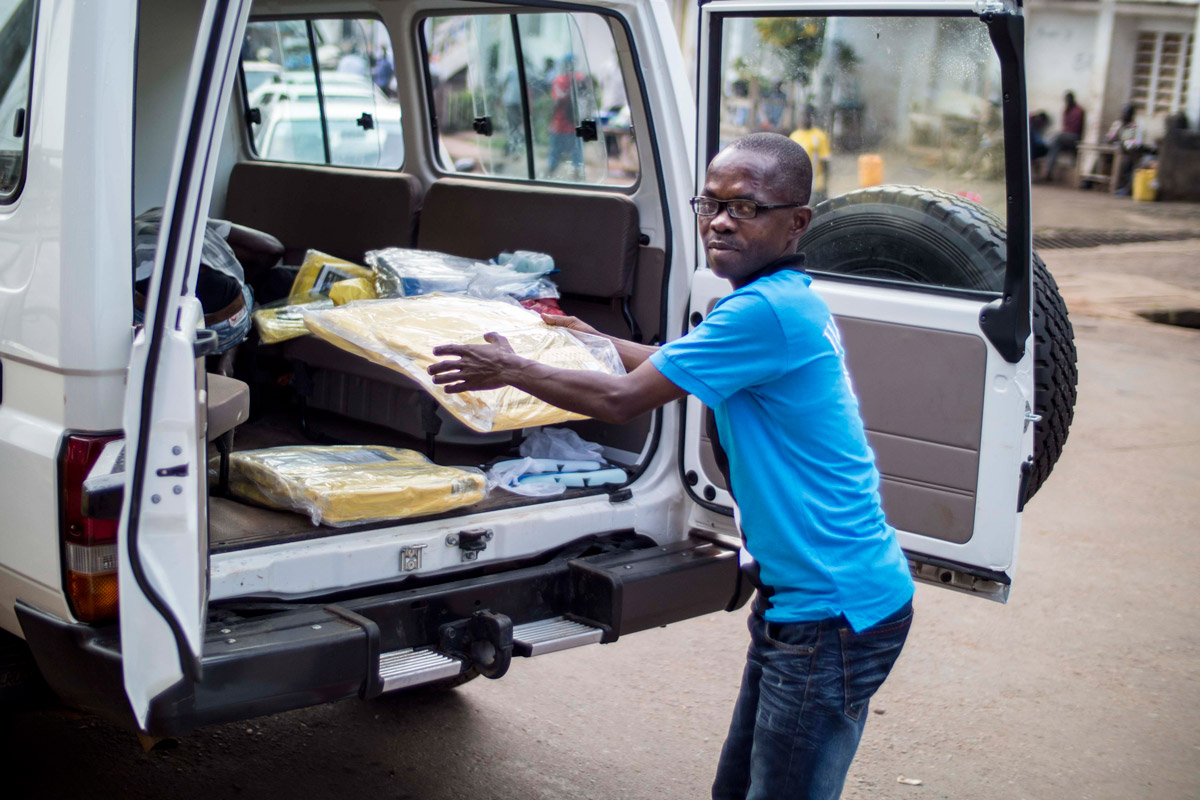
Safe and dignified
After intensive training in personal protection, the Concern-led local burial teams went to work. Each member was determined to ensure that burials were both safe and dignified, and that every grieving family would be treated with respect. To aid this, Concern worked with teams to regulate wages and ensure that working hours became much more flexible. A dedicated welfare officer was hired for the teams.
From the beginning, the Concern team was determined to ensure that burials were both safe and dignified, and that grieving families were treated with the respect they deserve. Each grave was given a geographical location and a plot number, which were recorded with the information of the deceased. Families were given a card with the details and the contact number for Concern’s family liaison officer. A simple grave marker with the name was initially erected at the grave site, to be replaced later by something more permanent.
A short religious ceremony was also allowed at the time of the removal of the body, and a small number of family members and friends were also able to attend the burial, wearing foot protection to prevent contamination.
Following these trainings and adjusted systems, 98% of burials in the Freetown area were considered safe — compared to less than 33% prior to our work.
Stigma and celebration
November 7, 2015 marked 42 days since the last reported case of Ebola in Sierra Leone. The milestone was significant as 42 days is twice the maximum incubation period of the virus. According to the WHO, it meant that the country was officially Ebola-free. “Zero + 42” became the shorthand rallying cry of the celebrations that have followed across the country and beyond.
It was an achievement driven largely by Sierra Leoneans themselves, and not by external forces. But some of the unsung heroes in the battle against Ebola were left out: Many of the same burial workers who risked their lives to help others were shunned by their families and communities because of their association with the virus. These workers should have been celebrated as heroes on November 7. The fight against Ebola had been won, but now they were left to fight a stigma.
Burial workers who should have been celebrated as heroes were left to be ostracized and shunned by their families and communities. The fight against Ebola was won, but now they were left to fight a stigma.
Concern began working within communities to counteract stigma and foster recognition of the immense sacrifice these men made throughout the 2014-2016 epidemic. In addition to the welfare officer, counseling services were made available to burial team members to ensure that their own dignity was maintained.
Other Ebola responders found their own ways of pushing back: Mohamed Samba Kamara, Mohamed Rogers, and Mohamed Lamintoray were members of Concern Worldwide’s burial teams, and their weapon of choice against stigma is rap, more specifically in the form of a song they call “No Discriminate.”
Heroes like Samba Kamara, Rogers, and Lamintoray were instrumental in ending the deadliest outbreak of Ebola. It’s now the responsibility of the government, organizations like Concern, and community leaders to make sure they and hundreds of other burial workers across the country receive the respect and admiration they deserve. “No Discriminate” is a powerful step in that direction.

